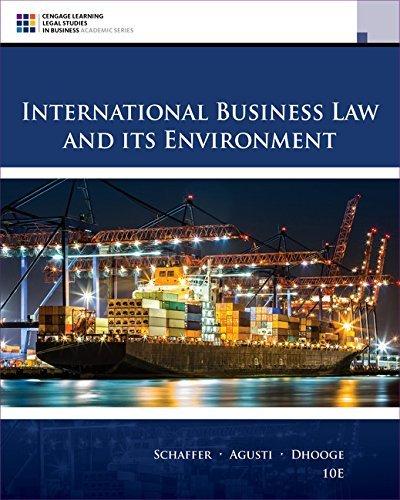Pesquera Mares Australes, a Chilean salmon exporter, was accused of dumping salmon in the U.S. market at
Question:
1. What is the purpose of comparing the price of salmon sold in the United States to that sold in Japan?
2. Why did Mares Australes not want the ITA to compare the price of salmon sold in the United States to the price of the "super premium" salmon it sold in Japan?
3. Explain the problem confronting the ITA in determining "foreign like product." How did the court define that term?
Fantastic news! We've Found the answer you've been seeking!
Step by Step Answer:
Related Book For 

International Business Law And Its Environment
ISBN: 9781305972599
10th Edition
Authors: Richard Schaffer, Filiberto Agusti, Lucien J. Dhooge
Question Posted:





